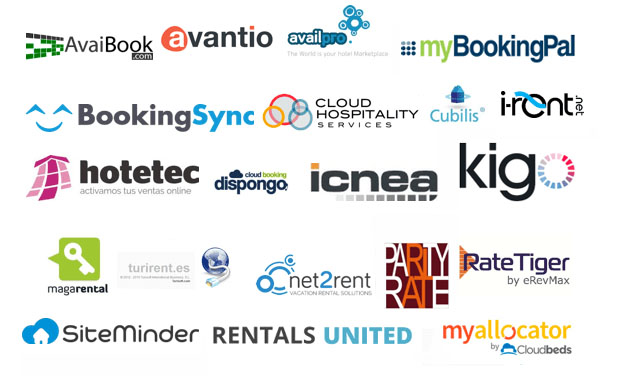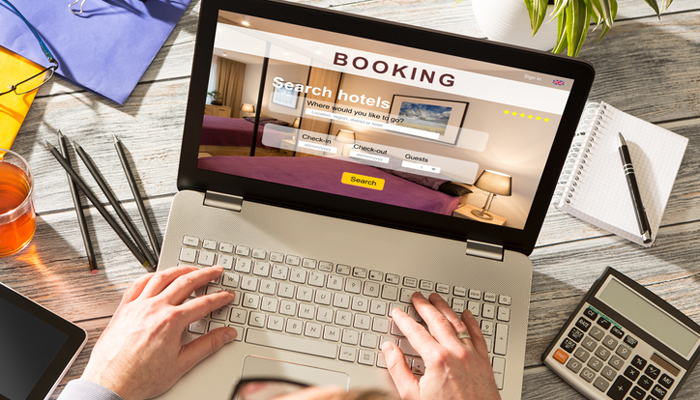What is a channel manager?
A channel manager is a software that manages the distribution and reservation channels. It allows hotel and service companies to centrally control all their tourist offer and maximise their sales, eliminating previous failures in the management and double bookings through a completely automated process.
Why are they so important?
The development of the Internet and the proliferation of online travel agencies (OTAs), have triggered huge growth in the distribution of tourist products and led to greater exposure in markets that would otherwise have been impossible to reach, increasing bookings through the billboard effect, which in turn requires some effort that would be almost impossible without the help of technology.
Today, the micro-segmentation of the tourist offer and the vast number of existing channels means that a channel manager is essential when operating with this volume of tourism platforms.
Tourism entrepreneurs can now organise all their distribution channels, websites and booking engine using a single software in a fast, efficient and straightforward manner.
What benefits can we obtain from a channel manager?
These applications or management programs are mainly used in large companies or chains, but as more and more distribution channels in the tourism sector are added to the market, more and more small hotels or travel agencies have implemented them to optimise their resources.
Efficiency
By integrating with the main hotel management systems (PMS) and central reservation systems (CRS), the channel manager lets you manage both the inventory of hundreds of OTAs and that of the website itself with the products offered from a single application and keep it correctly updated. This dramatically increases exposure and distribution in online channels.
It also makes it possible to sell their own products or those of other platforms to tourism companies without having to use each of them every time a customer requests the product in question. If you have different products offered by various suppliers, the channel manager allows you to have them all available and distributed on hundreds of platforms. This means you’ll increase your shopping cart and generate more revenue by offering your customers more products.
It reduces human error as it automatically controls all the processes, updates rates and availability of all the products for sale from a single website or application.
Everything is controlled in a simpler, more efficient way with a channel manager, which can offer much faster answers, and leads to an increase in the satisfaction of the end customer, the tourist.
Convenience
You can generally check both the products and the movements of the channel manager from a mobile phone, as they are fully responsive tools and adapt to any screen size.
And you don’t need to install anything, as they’re usually applications that work through cloud computing.
Possibilities
You can compare your prices and products with the competition and make instant decisions.
Both the reservations and the inventory are controlled without risk of mistakes.
You can also update prices and modify stock for each of the channels and ensure price parity in all of them.
Performance
You’ll increase your revenue by generating more online bookings. A channel manager provides the user with valuable information and immediate statistics on business performance so you can modify our sales strategy in the minimum amount of time.
And as it’s cloud-based, it’s available 24/7.

What channel manager should we choose?
When considering which channel manager is right for our business, we need to consider several key aspects before choosing one or the other:
-
Provides two-way connections.
Up-to-date information on both the hotel extranet and the connected channel will be a priority. To ensure this, two-way XML connections (allowing data to be stored and transmitted) will play an important role. It’s also important that the channel manager has a wide distribution range, as the hotel, product or tourist service must be able to access hundreds of available booking channels, and also take into account those of very specialised markets.
-
Takes the grouped inventory into account.
Grouped inventory will be the most beneficial feature for a channel manager. The hotel or tourism product can always show its maximum number of available units in all its channels through this method of distribution and prevent double bookings thanks to the real-time updates.

-
Proper integration with our current systems.
When using it for managing different technologies, it’s important for the hotel to have complete integration with the systems that use them: property management systems (PMS), central reservation system (CRS), revenue management systems (RMS), as well as others that we have. Whatever channel manager we choose, it should be integrated with the systems we use with a total guarantee.
-
Provides reports with data.
All the results obtained in present strategies must be available to make decisions and carry out future strategies. This data must be available so know where and when to make adjustments. When choosing a channel manager, you should focus on one that at least provides detailed information on performance, earnings per reservation, the volume of reservations and the average time between booking and arrival.
-
Adapts to the payments model we want.
A big plus in choosing a channel manager will be to consider a free trial period of several weeks and then a payment model. If we can control the expense with a fixed monthly cost, it’s much better as we can avoid contracts or surprise charges.
In conclusion, thanks to technology, we can now benefit from countless channels and optimally manage our company’s tourism resources, distributing the tourism product simultaneously on most of the existing platforms on the market with information about prices and availability regularised in real time.







